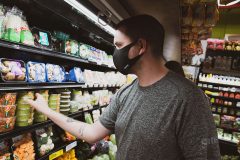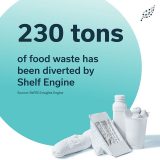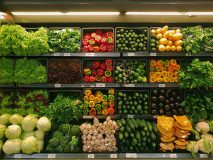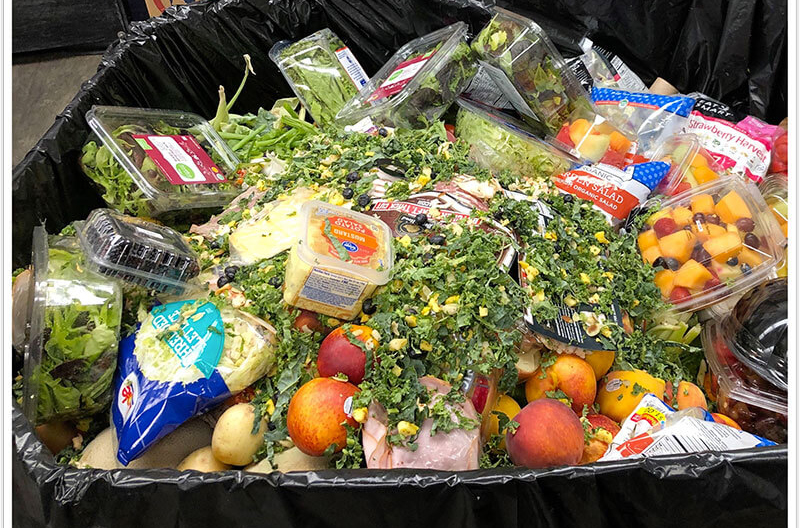Sponsored content
“The sales guarantee on any waste is really a big part of what attracted us to Shelf Engine. To not have to worry about the financial impact of any product that’s left over really allows us to be more aggressive to go after sales and new products.” – Zach Benton of Bi-Rite Market


What problem is Shelf Engine trying to solve for the grocery industry?
More than 80 billion pounds of food, valued at $160 billion, is being thrown away each year in the U.S. alone. Inefficient grocery operations are a leading cause of this problem. At Shelf Engine, we harness the power of AI to provide real-time, intelligent demand planning for grocery retailers across the United States. We’re able to drastically reduce the amount of food waste in the supply chain which in turn drives profit for retailers, lowers costs for consumers, and reduces the negative ecological and social impacts of waste. Our unique business model utilizes machine learning and scan-based trade to handle the entire ordering process from vendor management to shelf optimization, saving retailers money, minimizing stockouts, and reducing risk by buying back any remaining unsold merchandise.
What makes Shelf Engine different from other AI-powered supply chain solutions?
Grocery stores don’t want to manage another complex SaaS platform, they just want to make sure their waste problem goes away while keeping their shelves fully stocked. At Shelf Engine, we combine our AI technology with scan-based trade to guarantee sales for grocers. There’s no complicated setup or data integration, and we have no long-term contracts which make the total cost of ownership nearly zero. Our grocery partners experience immediate profit margin gains and a reduction in food waste from the first day they go live with our solution. The really unique aspect of our business is that we deliver a triple bottom line benefit. We’ve been able to scale up so quickly because we guarantee margin performance, enable employees to focus on higher-value work, and provide a meaningful reduction in greenhouse gas emissions.
 A lot of grocers already use computer-automated ordering systems for demand forecasting. Why should grocers invest in a solution like Shelf Engine instead?
A lot of grocers already use computer-automated ordering systems for demand forecasting. Why should grocers invest in a solution like Shelf Engine instead?
While CAOs are a much better alternative to relying on spreadsheets and standing orders, they still require employees to manually input data and guess orders to send to vendors. If employees are not feeding high-quality delivery and on-hand inventory data into the system, the result is inadequate forecasts and ordering and a negative feedback loop that can be disastrous to profitability. CAOs also don’t take into account high volatility in sales patterns, and other factors like breakage, vendor shorts, and spoilage, leaving buyers to override the software based on their personal judgment. At Shelf Engine, our AI system pulls in data from thousands of stores and SKUs to better and more quickly react to sudden changes in sales. We eliminate human bias from the process and fully automate ordering by submitting POs directly to vendors. Our ability to outperform other systems is what enables us to eliminate the cost of shrink for our customers. We buy back any items ordered that don’t sell for any reason, be it spoilage, breakage, or theft. CAOs or in-house systems are also typically very expensive to build and maintain, complicated to operate, and can take many months to years to implement. Our solution is rapidly deployable with minimal data integration needed to be fully functional. Most grocers are up and running with Shelf within two weeks.
Hearing about your solution, some merchandisers may think implementing Shelf Engine means employees will lose their jobs. Is your solution meant to replace workers? 
Absolutely not. In fact, by implementing Shelf Engine, employees no longer need to waste countless hours with manual data entry and inventory auditing. These employees should be spending time on the floor with customers, not in the back room working on ordering and inventory management. Our grocers are much happier to hand that work over to us so their employees can focus on improving the customer experience and optimizing planograms.
Shelf Engine’s mission is to reduce food waste through automation. What is the company doing to accomplish this?
 Our country is the global leader in food waste, with more than 80 billion pounds of food wasted every year. Supermarkets and grocery stores are one of the leading contributors to this waste, responsible for about 10 percent of all food thrown away. When food is wasted, it has a devastating impact on our planet, depletes valuable resources, and means people go unfed. The latter is particularly upsetting, especially when you realize there’s more than enough food to go around. Our hope at Shelf Engine is to transform the food supply chain to not only drastically reduce food waste but feed people and create jobs along the way. We know firsthand just how underrepresented the true volume of food waste is in the grocery industry, so our number one priority is helping retailers better assess, track, and improve their shrink rates.
Our country is the global leader in food waste, with more than 80 billion pounds of food wasted every year. Supermarkets and grocery stores are one of the leading contributors to this waste, responsible for about 10 percent of all food thrown away. When food is wasted, it has a devastating impact on our planet, depletes valuable resources, and means people go unfed. The latter is particularly upsetting, especially when you realize there’s more than enough food to go around. Our hope at Shelf Engine is to transform the food supply chain to not only drastically reduce food waste but feed people and create jobs along the way. We know firsthand just how underrepresented the true volume of food waste is in the grocery industry, so our number one priority is helping retailers better assess, track, and improve their shrink rates.
Having a diverse workforce that promotes equity and inclusion has been a major issue across all industries, but especially for tech. What are you doing at Shelf Engine to bolster representation?
Throughout hiring and recruitment, a key focus of ours is identifying prospective employees who bring new representation to the organization. We embrace diverse perspectives and believe it leads to better business decisions. One of the best examples of how we’ve done this is by bridging the tech industry’s gender gap. Women account for about half of our workforce — including our leadership team — doubling the industry average of 28%. Some of the biggest decision-making positions at Shelf are held by women, including our COO, Head of Customer Success, and Head of Data Science. These roles are responsible for driving key day-to-day business decisions, making the women who hold these positions instrumental in driving our success. We believe values start from the top in every organization and our leadership team is diligent in building a culture that supports impactful DEI initiatives.
Shelf Engine has only been around since 2016, yet has seen tremendous success. What do you think is your most important accomplishment thus far? 
We’re very proud of our ability to consistently help our customers improve their gross margins by 20-40%. However, the achievement we’re most proud of is the amount of waste we’ve helped grocers divert in the process. Year-over-year, Shelf Engine has achieved a nearly 57% reduction in overall waste in the supply chains we help manage, representing more than 230 tons of diverted food waste (data from ReFED). Our goal is to completely eliminate grocery’s negative impact on the environment, and although it’s a huge mission, we know we’ll get there.
The coronavirus pandemic was a wake-up call for a lot of retailers that their future could be completely upended and they need to innovate if they want to succeed in the long-term. What do you think the future of grocery will look like post-pandemic?
The grocery industry has been one of the hardest hit during the pandemic. Yes, sales are up for most grocers, but they’ve had to contend with panic shopping, rollercoaster sales, supply chain disruptions, managing safety protocols, and complying with ever-changing state-based mandates. This is why we’re going to be seeing more grocers turning to technology to alleviate the burden of demand planning, ordering, and inventory management. AI and predictive technologies do a better job than humans at forecasting sales volume during uncertain times and adjusting orders accordingly. We see a future where grocers no longer have to worry about ordering and complex supply chain logistics and can focus all their time and energy on delighting their customers.
Read about Shelf Engine’s expert, founder Stefan Kalb, here.

